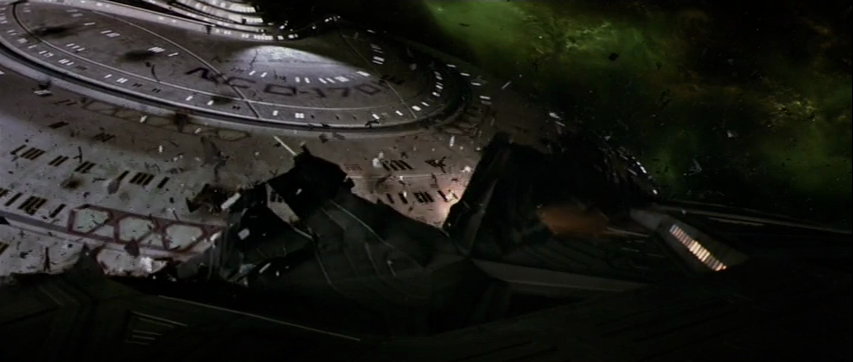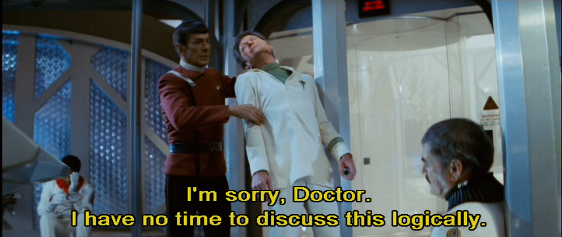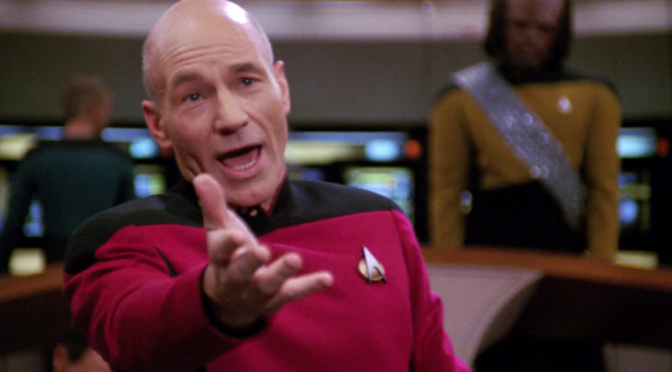(To ensure there’s no confusion here: I am not a lawyer, I am a writer who has an interest in this subject because I would like to not be sued or ripped off. Noble motivations, I assure you.)
As I’ve been saying for a while, intellectual property laws aren’t exactly as clear as everyone thinks. They’re surprisingly subjective at times, even going so far as to make it possible for straight up piracy to sometimes be considered more legal than some non-profit fan productions. The parts of the legislation meant to protect those fans are also pretty subjective and provide no real protection until entering prohibitively expensive court proceedings. There are some corporations who have, either intentionally or unintentionally, abused this system as a result – some even lobbying for it. And, unfortunately, the whole thing gets murkier over time as it gets constantly reshaped by lawsuits – sometimes permanently and in unexpected fashion.
So it was with a great sigh of relief that the lawsuit between CBS Paramount and Axanar Productions ended up settling out of court. Regardless of what side of the issue you fell on, the lawsuit was actually pretty important. The core of the issue wasn’t so much the legality of Axanar itself but what the ruling would do to copyright laws. Even those opposed to Axanar were dreading the potential ruling as it would have left a mark on fan productions and intellectual property rights for years to come. If the court ruled in favor of CBS Paramount, fan-productions as a whole would have been irrevocably damaged and a legal framework would have existed to apply that to anyone’s properties. Meanwhile, should Axanar have come out on top, it would have been yet another in a long line of loopholes letting certain individuals do whatever they wanted so long as they could afford the lawsuit. Either way, whoever won, every other creator out there would have lost in some fashion.
It was because of this that people like myself were confounded by the lack of a Cease & Desist prior to the lawsuit actually being placed. Though incredibly unpopular, the Cease & Desist letter is generally the go-to route for situations like this and the lack of one is generally a strange anomaly that raises questions. Some were under the impression that it was because CBS Paramount was obligated to sue, but that is actually not quite true and is based on assumptions from other IP laws. Instead, it was just something they decided to forego. Supporters of CBS’ actions pointed out that the C&D isn’t a legally binding act.
But, of course, that’s exactly why the C&D is usually the first move…
Dangerous Moves

Though the settlement between Axanar and CBS Paramount may have been seen as anti-climatic by some of the more vocal people in the debate, it was actually the best outcome possible. Agreeing to meet somewhere in the middle, Axanar goes on in a modified form, CBS has ensured no profit is made, and the rest of us get to carry on with life in general. No one really lost in this situation and everyone walked away with at least something they wanted. But the fact remains that CBS Paramount still could have handled this whole situation so much better than they did.
While Axanar definitely pushed buttons and limits that they really shouldn’t have, the way CBS Paramount approached the situation was almost a game of chicken. Though it would be fair to say that a major studio can’t be on the lookout for all possible copyright violations, this is incredibly unlikely in the case of Axanar. Despite multiple rounds of crowdfunding, press coverage, a video presentation at Comic-Con, celebrity endorsements, and contact between Axanar and people who worked for CBS Paramount – somehow they just didn’t act until long after Axanar was in too deep to really back out gracefully. And, frankly, that’s the sort of thing Cease & Desist was meant for.
The Cease & Desist letter is one of the great boogeyman of fan communities, right next to a DMCA claim. And, before the popularity of DMCA takedowns, it was often the final nail in the coffin of so many fan productions that garner enough attention. Though not legally binding, it’s incredibly rare that someone working on a fan-production in good faith actually presses on after receiving one. It works like a warning shot across the bow, a quick reminder to the smaller production that the big studio is well within their rights to crush them like a bug if so inclined. It’s not necessarily worded in such a way, but it’s essentially a posturing move that tells the infringing property to back off without having to go into a full-out lawsuit.

Very few fan-productions are anywhere near capable of defending themselves against such actions, and even if they were it’s generally not their intention to “infringe”. Most fans, being fans, don’t want to anger the original IP owner while they create their works of tribute. Because of that, a lot of very ambitious projects have ended with a C&D. This is especially true in the domain of fan-games and fan-films where a polished enough production with enough attention starts to show signs that it could actually cut into the profits of the original. And, almost without fail, the fan community in general responds to it with incredulity and moral outrage. So much work has been put into these things that the IP holder clearly wasn’t about to do themselves, after all!
Of course, these people never stop to consider that the C&D is probably the best thing that the fan could have received in that situation.
Meant as an opening action to a potential lawsuit, the C&D letter is one of the least aggressive ways that an IP holder can get their point across. Able to state the perceived violation, the legal codes that have been broken, the damages that could be pursued, and even an offer for some sort of settlement before anything goes to court – this letter gives the person who received it an opportunity to know what they’ve done and why they should stop. And, frankly, if there is no actual violation happening at the time, it also gives the person who received the letter an opportunity to find legal counsel to help them determine what to do next. Essentially, for as much as fans bemoan the C&D as this great evil which crushes the dreams of the common fan, it really kind of protects them.

Mind you, this is something of a side effect and the IP holder isn’t doing it strictly out of the kindness of their hearts – it actually protects them too. While many have pointed out that a C&D essentially has no teeth without the prospect of an eventual lawsuit, the act of issuing one provides several benefits to the IP holder. In CBS Paramount’s case in particular, three things a C&D would have done really stand out.
First of all, no matter who you are, lawsuits get expensive . Sure, a corporation has the ability to dump as much money into the barrel fire as they want, but it doesn’t mean it’s recommended. Even with a high power legal team on constant retainer a lawsuit is going to equate a lot of time, money, and resources. Though a major studio can certainly afford this, given the number of IPs your average studio has to defend, doing it on the regular is just bad business.
This is especially true in high profile lawsuits, because at that point you’re likely to have legal teams fighting against you for free. As some people may know, Axanar Production’s legal team was working pro-bono. This wasn’t out of the goodness of their hearts, they may have been great people, but they really wanted to be the lawfirm that beat CBS Paramount. They literally had nothing to lose considering the deck was stacked against them and overcoming those odds would have greatly elevated their reputation. Someone with deeper pockets will someday have a dispute with a major studio, it’s inevitable, and they wanted to be the ones those people would hire.

Second, while C&Ds are often fairly unpopular, the backlash against a C&D letter is fleeting and generally blows over after a couple months at most. In fact, with the right timing they could have minimized backlash tremendously while establishing their policy relatively quietly. A C&D letter sent in the middle of the crowdfunding campaign would have likely ended the situation before it even became a situation while informing other fan-projects just where they drew the line. And, without having been literally invested, the fan community would have been upset but not necessarily furious.
Instead, the lawsuit meant they were entrenched in this situation for over a year – on the 50th anniversary of Star Trek. Every press event, every presentation, every announcement in 2016 had at least one person, website, or article asking about whether or not they were still suing fans. It’s true that Axanar Productions could have blown them off, but at least then CBS Paramount could throw up their hands and say “hey, we tried”.
Third, and most importantly, is the fact that filing a lawsuit opened them up to the risk that they could lose. While many were focused on the ramifications of Axanar losing, what with establishing you could totally sue fan productions, the real danger was in what would happen if the studio lost. Consider for a moment what Axanar’s win would have meant – in one decision the idea of “fair use” could have essentially become “carte blanche”. It would have definitely gone a long way to protecting fan-productions for the foreseeable future, but the greater implications can’t be ignored. Axanar winning would have meant essentially anyone could create a feature length, million dollar, professional quality film of someone else’s IP with original cast members in their original roles. In the wrong hands that could have been devastating.
While the prospect of them losing was unlikely, and there would have still been some IP protections remaining, the gamble CBS Paramount took on everyone’s behalf to sue an ostensibly non-profit fan-film was insane. The decision would have influenced future fair-use doctrine cases in regards to everyone’s IP, big or small. And what makes matters worse is that the settlement they got was essentially “please follow our guidelines” – something they could have done in a C&D. To put this in Star Trek terms: In the middle of a tense standoff with dozens of ships pointing weapons at each other, CBS Paramount unilaterally decided to set off a mechanism to drop everyone’s shields so they could transport over to make a deal they could have easily gotten over a view-screen.

Regardless of how safe they thought the lawsuit was, the fact they wouldn’t even try a C&D, DMCA, or any number of other solutions before jumping to the lawsuit raises so many questions. When I first wrote on the subject I had a feeling it was about the development of Discovery, but in the time since I’ve come to consider other motivations. Perhaps they really didn’t realize what was happening until too late (however unlikely that would be). Maybe they wanted to make an example out of Axanar to scare off other potential fan productions and needed to see a court strike down the “fair use” argument. Maybe they came to the conclusion that Axanar’s claims of non-profit were false and they needed to see the financial statements before they could settle. Possibly they wanted to avoid having a slick fan-film showing at Comic Con at roughly the same time they would only have a poorly rendered demo reel of an outdated, clunky ship design rejected in the 70s.
Hell, it could have been all of the above.
But whatever their reasons, it still remains strange. The C&D letter, however toothless it may be, could have saved everyone a lot of stress and irritation over the last year. Though it still could have ended up in a full lawsuit eventually, it would have at least started the situation off on a better foot. Instead, we got to watch CBS make dramatic, confusing gestures…
That only a select few will ever truly understand.
(I write novels. Hopefully I never have to file a lawsuit over my IP because knowing my luck I would lose anyway! In the meantime, you can retweet me – it’s like infringing my copyright, but friendlier.)







